Glenn Youngkin won election as Virginia Governor on a platform to end DEI/CRT and divisive policies in Virginia Schools that he points to as his qualifications for higher national office. The reality of his failure to deliver is no better illustrated than at the Virginia Military Institute (VMI) where the superintendent, his administration, and Board of Visitors (BOV) members appointed by far-left Governor Ralph Northam openly defy his authority and that of his BOV appointees.
Within days of Governor Youngkin’s election, VMI’s spokesperson told the Washington Post VMI saw no need to change course just based on one election. When the Virginia General Assembly put limitations in VMI’s budget that none of the additional funds would be used for DEI the administration said it would, and did acquire funds from “other sources” and $8million for “Inclusive excellence” (DEI) is now “operationalized” into the VMI budget according to a brief by the VMI Finance director to the BOV.
Speaking at VMI Governor Youngkin’s Diversity Director declared “DEI is DEAD” but mandatory cadet “training” continues under “Superintendent’s time” and for faculty/staff through speakers championing DEI. VMI received a rare sanction in a Virginia Court for making false and misleading representations it would not award a DEI training contract when it already had.
Now, although it is codified in Virginia law that the governor is VMI’s “Commander-in-Chief”, the administration countermanded direct orders from the Governor for one of VMI’s oldest and most honored traditions.
The message from VMI’s Superintendent is clear that he will do whatever he wants in pushing the divisive DEI/CRT agenda he was placed at VMI by Governor Northam to do and no one dare challenge him.
Article from The Cadet newspaper at VMI:
Amnesty: Governor Youngkin has no power at VMI (15 May 24)
For those unfamiliar with the Virginia Military Institute (VMI), disciplinary actions against Cadets include “demerits” recorded in their records, confinement to barracks, and “penalty tours” (PT) or a combination of those for misconduct ranging from minor infractions (uniform violations, dirty rooms) to major (drinking in barracks, disrespect to cadet officers, breaking VMI regulations).
Cadets accumulating more than 75 demerits in a semester (80 for freshmen) are placed on conduct probation. Those with 100 demerits in a semester are recommended for suspension from VMI. Subject to Commandant staff approval, cadets march in a supervised formation, attend a study hall or labor in a “work detail” where each 50 minute session eliminates one PT.
Confinement physically restricts Cadets to the VMI barracks, without class privileges, except for limited official duties such as meals, classes, etc. For example, the highest (Penalty #1) receives a ”15-4-60”or 15 demerits, 4 months barracks confinement, 60 penalty tours (50 hours). The second most severe punishment (Penalty #2) receives a “10-4-55” or 10 demerits, 4 months barracks confinement, and 55 penalty tours (46 hours).
Amnesty releases all cadets from confinement and eliminates penalty tours. In some cases over VMI’s history, it expunged demerits from cadet records. In Virginia amnesty is the ultimate embodiment of the Governor’s authority as Commander-in-Chief of VMI, over all Virginia Military forces, and over the VMI Superintendent.
To many observers the Corps’ muted reaction to Governor Youngkin’s order granting amnesty to the Corps during the parade on April 10th came as a surprise given the traditional uproarious responses from Cadets in the past. It seemed to surprise, and possibly somewhat embarrass the Governor to the point he pointedly, and repeatedly, granted the Corp permission to “show emotion” at his announcement. Cadets were hesitant to react upon the announcement as they were told to maintain bearing if amnesty was granted, yet even the second attempt was somewhat lackluster. While this may have been a result of confusion on how to respond on the part of the Corps, it is somewhat representative of the diminished perception of amnesty’s legitimacy.
To address Cadet perceptions of amnesty and the failure of the administration in some cases to fully absolve all Cadets of their crimes, it is necessary to examine the history of amnesty at VMI.
Reaching into the VMI archives back to the first mention of “amnesty” in 1919 supports this conclusion and reveals a traditional amnesty scope beyond not only the Governor but also one that, in application, provided meaningful incentives to those cadets who abided by Institute regulations.
The superintendent himself can, and has granted amnesty to the Corps. According to the December 9, 1957 issue of The Cadet, VMI Superintendent, MG William H. Milton, Jr. granted amnesty following one of the greatest football years in VMI history. According to The Cadet at the time, Milton declared, “It has long been the tradition at the academies to allow visiting heads of states and royalty to grant an amnesty of all penalties then in effect.
So, in view of the richly deserved royalty of the football team, an amnesty was given which revoked all confinement and penalty tours previously awarded, until Christmas.” According to the January 29, 1993 VMI Institute Report, after President Clinton’ declined to have the VMI Corps in his Inauguration parade, the Corps gave a salute in front of Barracks and VMI superintendent, Gen. Knapp, granted amnesty.
The Corps also received amnesty from a number of United States Presidents. President Kennedy granted amnesty at the request of VMI Cadet First Captain Josiah Bunting during a White House visit in 1963. President Johnson granted it at the Marshall Library dedication in 1964. In response to what The Cadet reported was a “well composed letter” from members of the Corps, President Reagan opened his remarks at the 1981 Yorktown bicentennial by granting amnesty to all “errant” VMI cadets, even though, as The Cadet reported at the time, “it had nothing to do with the bicentennial occasion and the fact that most of the people present had no idea of what amnesty meant”.
President George Bush granted amnesty in a 1989 Letter to VMI Superintendent Gen. Knapp “as a mark of my respect and in thanks for the Corps of Cadets’ service to the nation over the past 150 years”. In 2002 President George W. Bush followed in his father’s footsteps and began his address to the Corps of Cadets and Marshall Award winners by announcing an amnesty for the Corps.
Historically and traditionally, the Governor of Virginia grants “amnesty” to the VMI Corps of cadets on special occasions. The most prominent of these are normally after the Governor’s inauguration ceremony and on Founder’s Day in November. Just a few documented examples from The Cadet and other sources show Gov. Youngking’s predecessors granted amnesty including, but not limited to Governors Godwin, Robb, Baliles, Wilder, Allen, Gilmore, Warner, Kaine, McDonnell, McAuliffe, Northam, and Youngkin although this tradition repeats back to at least the 1950s in VMI’s history.
The debate over the fairness of amnesty given to the Corps is as old as the practice itself. In his 1993 editorial in The Cadet, Editorial Editor Sean Dadson ’94, wrote [in part] that although Governor Wilder’s amnesty was welcome, [excerpts]
…for many cadets the act was just another speech and a way of saying that being restriction free was not a rewardable act. In other words, it does not pay to abide by the rules. But being in a military school, one should not expect to be rewarded greatly for doing what is required of his conduct.
Confinement and restrictions are tools used by the Administration to breed discipline. When you commit an infraction of a rule, the penalty is assessed. You are set with restrictive status and there is usually no way of being released unless the Commander-in-Chief grants Amnesty.
The other side of the coin is the cadet who is not on confinement When Amnesty is granted, he is given some limited all duty and maybe a weekend. This is not in con-junction with the principal, although it is greatly appreciated. To be granted Amnesty is to give help to those who need it, not to reward those who are good. We come here knowing that following the rules is expected and not rewarded.
In almost all past instances of amnesty, cadets who “abided by the rules” were rewarded by either the grantor or the administration.
Although it goes back further some alumni historic documents show that in 1986 Governor Baliles granted amnesty and all Cadets who would not otherwise benefit from the amnesty received an additional class weekend. The tradition continued through 1993 when the Superintendent bestowed the same benefit after Governor Wilder declared amnesty.
In 1998 Governor Gilmore left the reward for cadets who did not benefit from his amnesty to the Superintendent who granted, according to The Cadet at the time, “two days for all do-gooders.” After Governor Gilmore’s second amnesty in 1993 the administration granted cadets without infractions “thirty merits” either to cancel future infractions or as credit toward a weekend or other reward for going without demerits for a specified period.
In his amnesty announcement in 2002, President Bush asked the Superintendent to “be generous in the interpretation of this doctrine” and those without infractions received at least a weekend. After the Governor granted amnesty in 2009 and “any other privileges according to his discretion”, Gen. Peay awarded a weekend to any cadet who did not have penalty tours or confinement at the time amnesty was granted.
Following Governor Youngkin’s amnesty, cadets with infractions were “released into the wild” while cadets who followed the rules and had no punishment were granted the privilege to leave their beds down and skip breakfast the next morning.
But was the Governor’s amnesty order followed? Are there cases in which it does not apply? This seems to be something that has been identified by the Corps in recent years.
Other than relating to taxes and other areas, there is no specific reference to “amnesty” in Virginia law and none attributed to VMI and cadets. “Amnesty” in the context of VMI Cadets appears to fit under the legal definition of a “Pardon”. The power to grant a pardon is vested exclusively in the governor by the Constitution of Virginia and may be exercised by him for any offense at any time after conviction.
Through the history of the tradition, amnesty was never applied to conduct probation, academic probation or Honor Code offenses. It always applied to erase confinement and penalty tours. It very often included expunging demerits from cadet records as well. In all cases, if the Governor grants amnesty to “the Corps” it must apply to the whole Corps and all offenses without exception unless he personally limits or modifies his order. Governor Youngkin “said the right words” in ordering amnesty for all cadets and its application to all Cadets with confinement and penalty tours.
The point of contention is found in VMI’s Memorandum 39 which is the amnesty order published to the Corps. Paragraph #5 states: “The Superintendent retains the authority to make exceptions to this amnesty provision and has communicated this exception directly to the affected cadet(s) involved. This gives rise to the aforementioned question of whether or not the amnesty order is properly followed when Cadets who had a #1 or #2 did not receive amnesty for that specific bone. This is also contradicts the earlier paragraph #4 of the same order which states: “All Executive Committee and General Committee penalty tours and confinement in effect as of 1630 hours on Wednesday, 10 April 2024, are similarly canceled. Any offenses adjudicated after that time will carry full normal penalties.”
According to documents obtained by The Cadet under the Freedom of Information Act (FOIA,) the Superintendent and Commandant removed the Governor’s full amnesty authority. The 2020 – 2021 and 2021- 2022 versions of VMI regulation, Part III (Blue Book), recognized and honored the Governor’s authority stating; “The President of the United States or the Governor of Virginia may suspend confinement and penalty tours. Amnesty does not affect demerits or Academic/Conduct Probation.”
The August 2023 Blue Book changes this to read: “ The President of the United States or the Governor of Virginia may suspend confinement and penalty tours. The Order to do so defines the scope and applicability of the Amnesty. Amnesty does not affect demerits, Penalty #1, specified General Orders related penalty, or Academic/Conduct Probation, and may have other applicable conditions [emphasis added].”
While there are situations that warrant exceptions to every rule, the Governor or the President, not the Superintendent has sole authority to modify his order as Commander-in-Chief. This is no longer the case at VMI. This seeming overextension by the Superintendent appears to be in poor taste for those Cadets who remain under the penalty of prior bones, effectively diminishes the effects of the governor’s amnesty, and, as a result, undermines the Governor’s power and position as the Commander-in-Chief. No to mention the President of the United States. What other changes were made at vMI without the BOV and/or Commander-in-Chief approvals? What other orders were disregarded?
Unquestionably, if someone other than the Governor were to modify or refuse to honor the Governor’s amnesty order, there should be some corrective action of what would appear to be an illegal act. This surely applies in the military under the Uniform Code of Military Justice (UCMJ) in the military if a soldier, sailor, airman or their civilian leadership defy an order of their Commander-in-Chief. It surely applies to the Governor’s power under Virginia law and its constitution.
What would occur if the Governor granted amnesty to prisoners and the warden ignored the order or only applied it to select inmates?
What would occur if the Superintendent granted a cadet amnesty or gave no punishment and the Commandant ignored or modified it on his/her own?
What would happen to a cadet who refused to implement an order of the Commandant’s staff or administration?
Regardless of one’s opinion on the subject of amnesty and rewards for good Cadets, good order and discipline, especially in a military environment, demands orders be followed or offenders be punished. We must ask: what will occur here?

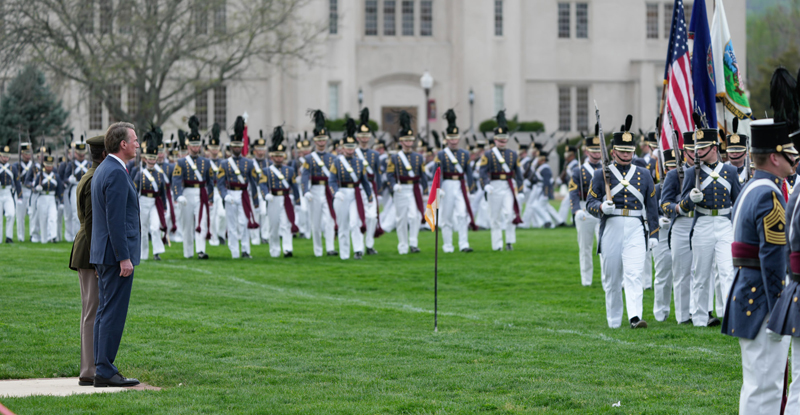
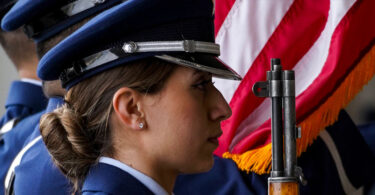
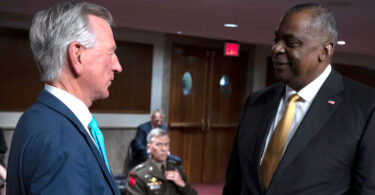
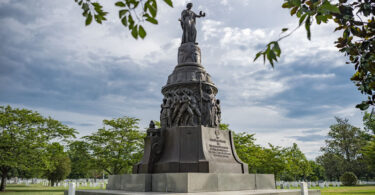
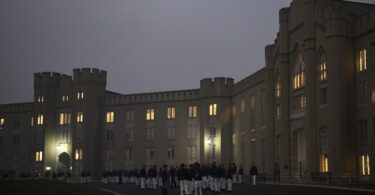
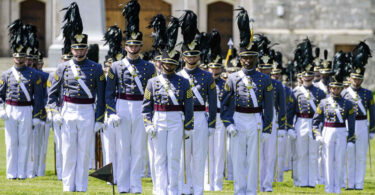
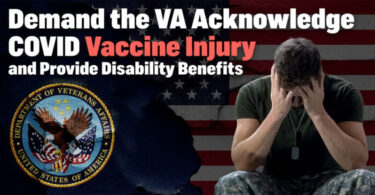
Leave a Comment